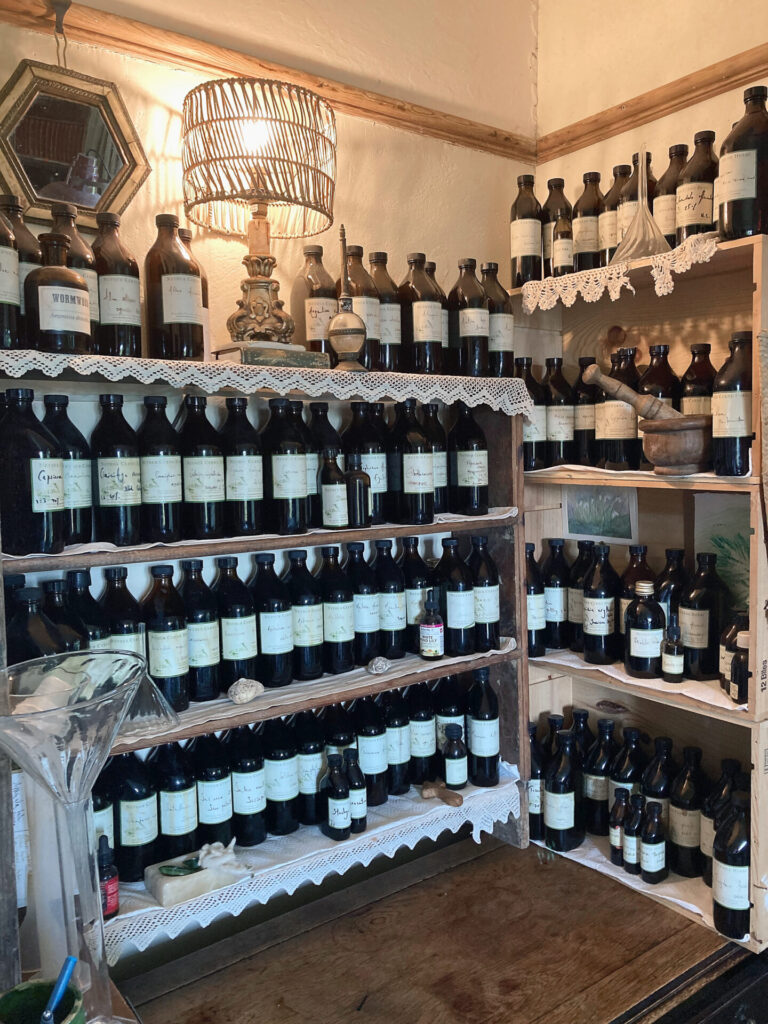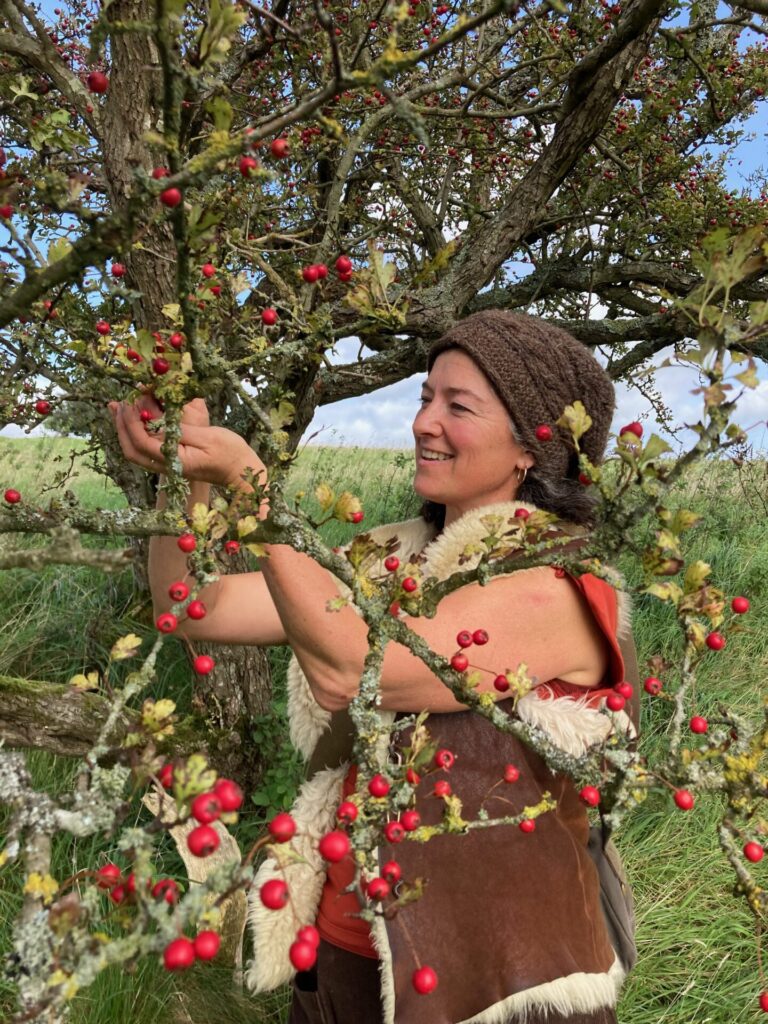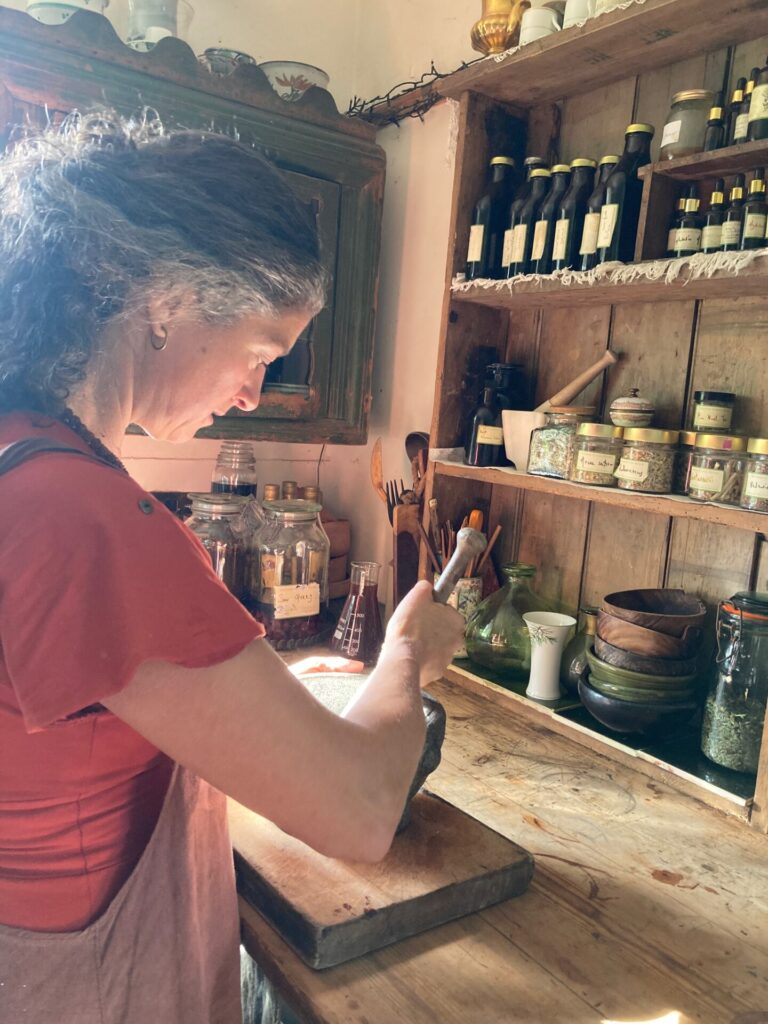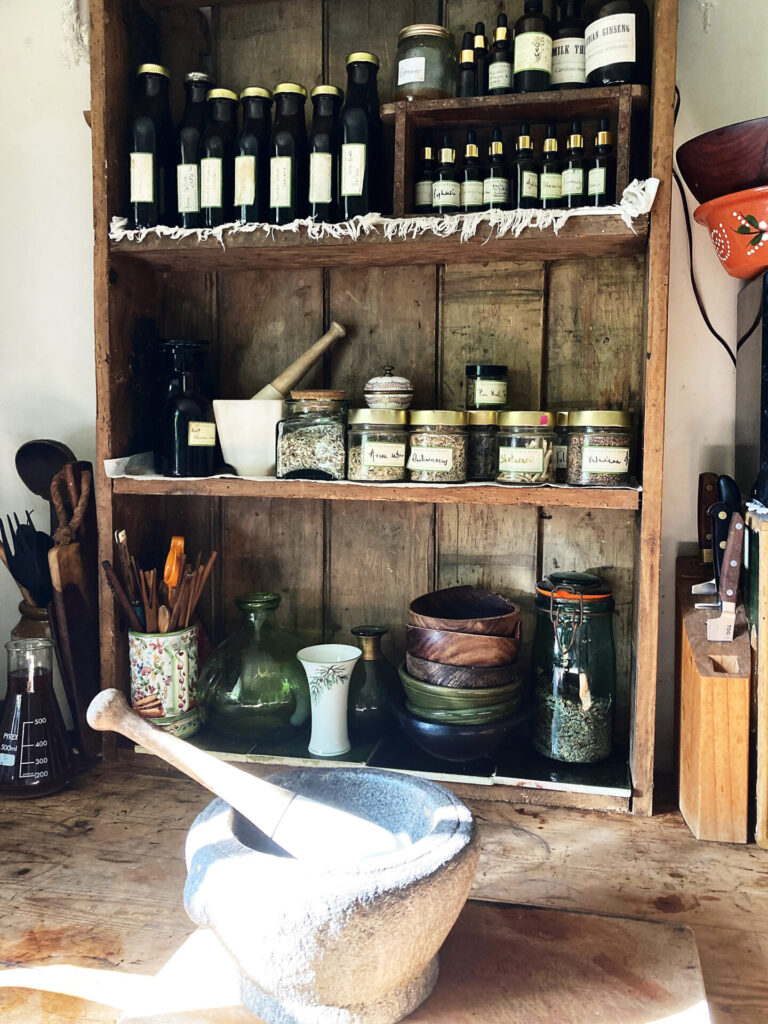Eleanor Gallia has a pragmatic approach to herbal medicine, and merges tradition and science in her effective, earth-sourced medical practice
‘It’s always been very much part of how I’ve been,’ says medical herbalist Eleanor Gallia, whose practice draws on tradition and science.
Her house is full of dark-coloured glass bottles, book cases stacked with them, containing her myriad remedies – the dark colour necessary to preserve the integrity of the remedies.
We sat in the cosy study, as she explained what had led to her becoming a medical herbalist.
‘It’s the second oldest trade on Earth,’ she says.
Medical herbalism is ancient, dating back some 60,000 years to the Palaeolithic. Around 5,000 years ago the Sumerians listed hundreds of medicinal herbs on clay tablets – the first ever written records.
Eleanor grew up on a farm and plants have fascinated her since she was little. She was always bringing them into the house, until her mother told her she couldn’t, unless she was able to name them. ‘Many of the old names tell you a lot about the plants,’ she says. ‘How they work, what part of the body they might work on – liverwort for example, or pulmonaria (lungwort). When I was on the farm I was fascinated by how the sheep would self-medicate, going to ivy to cleanse their afterbirth, for instance, and the dogs would eat couch grass to rid themselves of something in their stomachs.’
Eleanor was studying mediaeval literature when she switched to the study of herbs as medicine, training as an apprentice in a firm established in Edinburgh in 1860. But she’d already begun to have some understanding of herbal medicine from reading Chaucer’s Canterbury Tales at school in Sherborne: ‘Something bigger opened up, the concept of “humours” – black and yellow bile, phlegm and blood, related to the four elements and the four seasons – and how human health depended on a balance between them
Her studies included standard medical subjects – anatomy, physiology, pathology, sharing the mortuary with Edinburgh University medical students – in addition to botany. It was a rigorous training, designed to be able to ‘match the plants to the people’. Part of a medical herbalist’s skill is to find a remedy tailored to the individual. ‘The key word is holistic,’ says Eleanor. ‘It’s seeing the whole person, seeing the big picture and understanding how to rebalance the body.’
Disease (literally ‘dis-ease’), says Eleanor, is when we humans become divorced from the natural world where we belong, separated from the rhythm of the seasons and the cycle of the land. ‘We become unravelled. We become dis-eased. We rush off and look for instant panaceas in nature, looking to buy an instant cure. We think we can fix it through, for instance, a weekend workshop. But that won’t work. Just buying a herb pill on the internet might help your symptoms, but it’s not going to treat you holistically, it’s not going to reduce the gap in the way that we live and the way we interact with the world.’
She is also increasingly concerned that many of the herbs available as remedies in one form or another are not native to this country, and she argues that we need to be looking around at what common herbs and plants grow right here on our doorstep, and to use those: ‘A plant that’s grown sustainably has got much more depth to it, more resilience, it’s got what we’re looking for, rather than artificially cultivated rows.’
Many of the plants we call weeds – dandelion, elder, cleavers and nettles – have medicinal benefits that have been known for centuries. Even the sting of the nettle does us good, stimulating the blood, bringing it to the surface, helping with rheumatism and arthritis. Her advice: pick the new shoots. She gave me a mug of fresh-picked nettle tea – and it was delicious!

Eleanor is well-known locally for creating the Beltane Brew, made in conjunction with the Cerne Abbas Brewery, to be drunk as part of the Cerne Giant Festival’s celebration of spring. It’s a brew made of beer and locally picked wild herbs that cleanse and stimulate the body and rid it of its winter sluggishness.
Eleanor has a farm in Nether Cerne. Before I left, she took me up into one of the fields above her house to pick fresh hawthorn berries that are, she says, excellent heart medicine.
Her main focus now is the farm and managing the land biodynamically – “healing it” as she puts it. It’s a more than full-time job, since she does it single-handedly! Eventually, she’d like to be able to source all the herbs she needs for her practice from her own land.
- You can join Eleanor for the Gathering The Herbs for the Beltane Brew – tickets from £16






